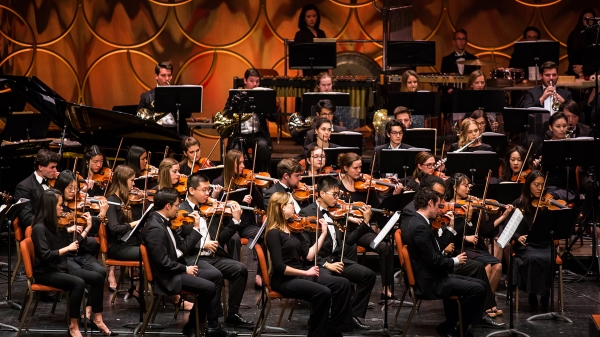Addressing daycare deserts and other preschool challenges
ASU education expert on task force examining Mesa's early education situation

Preschool looks like all fun with blocks and games, but it is a very important aspect of education.
Just as food deserts — urban areas where it’s difficult to buy affordable, fresh food — can have an adverse impact on nutrition, “daycare deserts” can get a child’s education off to a less-than-healthy start.
A task force convened by John Giles, mayor of Mesa, Arizona, studied preschool education options in the city and found such deserts, large areas with limited options for preschool, as well as issues of affordability and quality in the few preschools that exist in the area.
Enrollment options for early education in Mesa do not match the number of young children in parts of the city, and that pattern is true across the nation in various pockets, said Arizona State University clinical assistant professor Allison Mullady.
Mullady, who is also the director of Mary Lou Fulton Teachers College Preschool at ASU, was one of the early childhood education experts who made up the task force. She said the group was created after the mayor became concerned about an increasing number of the city’s incoming kindergarten students having lower skill levels than those of 5-year-olds in previous years.
There are inconsistencies in what people think preschool educators should be able to do, Mullady said. She contrasted what is required of preschool teachers in the state and what Mary Lou Fulton Teachers College requires for early childhood education certification.
In an Arizona-licensed preschool, a lead teacher — one who plans and coordinates activities and may have classroom assistants — must be 18 years old and have at least six months of experience working with preschool-age children. That experience is loosely defined, and the criteria could be met with six months of babysitting or volunteering in a church nursery.
In contrast, graduates of Mary Lou Fulton Teachers College complete intensive coursework with rich clinical experiences. The program leads to dual certification in early childhood and early childhood special education. In their junior year, students complete a minimum of 100 hours in a supervised clinical rotation in school settings.
This all occurs prior to the senior-year residency known as iTeachAZ, which is a full year of student teaching. This rigorous program is the only one of its kind in Arizona, and Mary Lou Fulton Teachers College has received national recognition for its number of graduates who remain in the teaching profession.
When looking at preschools across the state and beyond, Mullady said access, affordability and quality are the three pillars of early childhood education.
“Very often, if a facility offers one or two of those, it is challenging to provide the third. An affordable preschool with quality programs often will have a long wait list, limiting access. Typically, quality schools cost more to operate, contributing to higher costs for families; and access is an issue,” said Mullady, who has spent more than two decades working in this area and advocating for adequate funding and a better understanding of the necessary resources and skills for preschool teachers.
“We hope that our work in Mesa will have an impact and inspire others to review their local offerings and consider prioritizing early childhood education.”
Two recommendations from the task force that Mesa city officials are already implementing are appointing a champion for early childhood education on the city staff and creating an early childhood advisory board to guide change and plan for the future of early childhood education across the city.
Mullady said that the mayor and city officials in Mesa are encouraging a partnership with ASU’s early childhood programs in the future and want to extend opportunities for children in Mesa.
“For quite a while we’ve known how critical the first five years of life are to children’s development,” she said. “Now I see a growing number of leaders in business and politics embracing early childhood education because they are discovering the very real impact this has on the health and economic development of their communities.”
More Arts, humanities and education

ASU Symphony Orchestra welcomes visionary conductor Jonathan Taylor Rush
Guest conductor Jonathan Taylor Rush will join Arizona State University’s Jason Caslor, director of bands, to lead the ASU…

Chemistry classes are key to art student's success
Amanda Barnette has a passion for art preservation. That means that, for the past four years, the Arizona State University…

ASU+GSV Summit tackles big questions about AI, technology, education
Editor's note: We'll be updating this story daily throughout the summit. The annual ASU+GSV Summit kicked off in San Diego on…